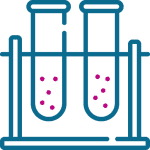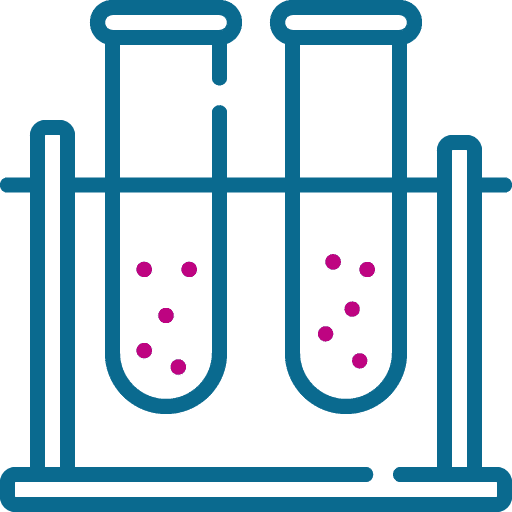EBV (Epstein-Barr virus) IgM
The study shows an acute infection of infectious mononucleosis caused by Epstein-Barr virus. The increase in IgM antibodies to EBV capsid antigen (Epstein barr) disappears within 4-6 weeks.

IgM antibodies to EBV capsid antigen (Epstein-Barr) – a test that detects acute infection with infectious mononucleosis caused by Epstein-Barr virus. The clinical spectrum of symptoms caused by the virus is very broad, with fever, angina, and enlargement of lymph nodes and spleen.
The virus is named after the scientists who studied it, Anthony Epstein and Ivone Barr. According to doctors, the virus is first contracted in early childhood and does not cause any illness. The younger the age at which this happens, the less likely a person is to become ill. Epstein barr virus is not called a kissing disease by accident, because the virus is spread through saliva. Kiss disease is characterised by fever, angina, enlarged lymph nodes and certain blood abnormalities. The liver or spleen may also be enlarged.
EBV (Epstein Barr virus) IgM – IgM antibodies to the Epstein Barr virus (EBV) capsid antigen are detected from week 3 after infection. The blood test shows an increase in monocytes and an increase in IgM. The increase in IgM antibodies to EBV capsid antigen (Epstein barr) disappears within 4-6 weeks.
There is currently no specific treatment to prevent the virus from multiplying. In rare cases, glucocorticoids are prescribed for prolonged fever, certain blood abnormalities, and breathing difficulties due to enlarged tonsils and lymph nodes. One thing to remember when treating this acute infection. Tonsillitis is caused by a virus. However, sometimes the patient’s well-being deteriorates due to a secondary bacterial infection caused by streptococcus. In this case, antibiotics (ampicillin or amoxicillin) should not be given, as the patient may become severely ill. Kiss disease is also thought to cause chronic fatigue syndrome.
You can consult our family doctors.

